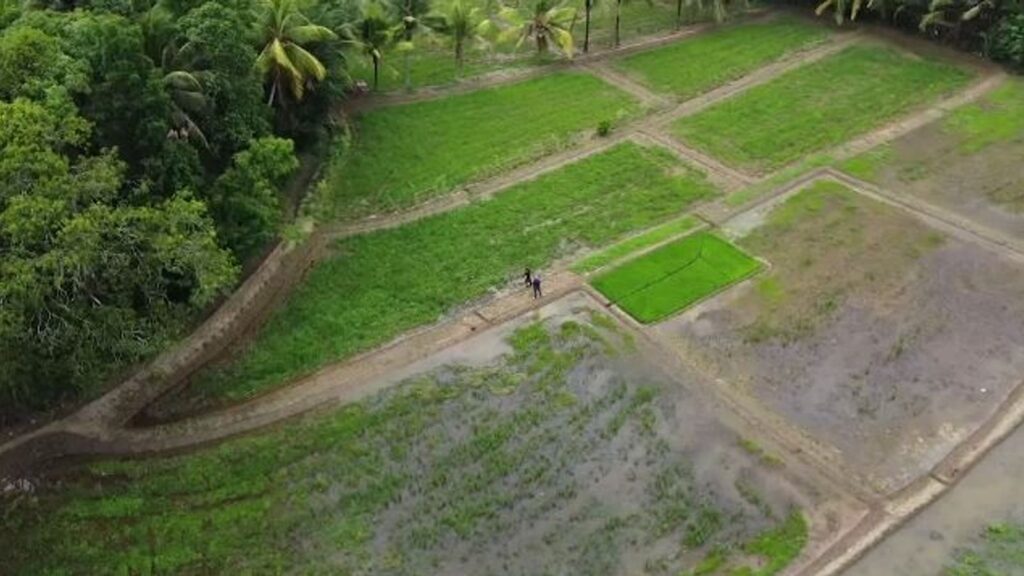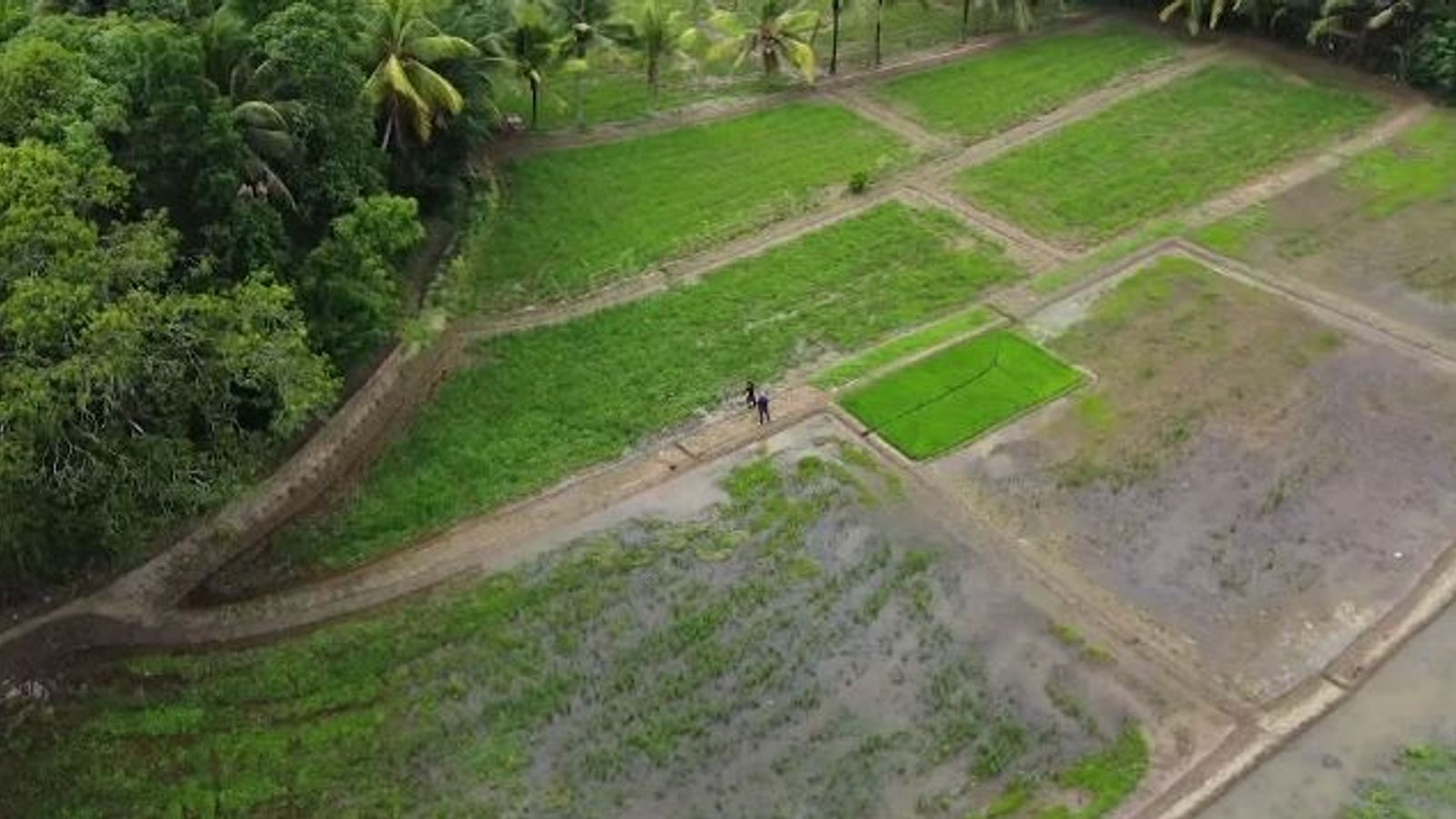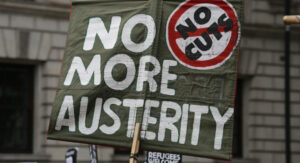
Dr. Ahilan Kadirgamar made this presentation at an online discussion on the current economic crisis in Sri Lanka, organised by the Kuppi Collective on April 26, 2022. It was transcribed by Treshan Fernando and edited for publication by Polity.
In this talk, I wish to address three questions: One, what kind of crisis is this? Two, what does it mean to go to the International Monetary Fund (IMF)? Three, what kind of alternatives can we start thinking about?
The Crisis
Firstly, what is this crisis? There is a sense among people that somehow this is a short crisis. People think, in six months’ time, we’ll be back to where we started, that we can rewind to three years ago, before the pandemic. But I think that is a very short-sighted assumption about what we are facing. This is not a short crisis. My sense is that this is going to be a lost decade. A lost decade like the crisis that Greece went through.
Now when economists talk about crises, they use the term ‘recession’. What is an economic recession? An economic recession is when there are two consecutive quarters of economic contraction. That is when there is no economic growth: rather the economy is shrinking for two consecutive quarters. If you look at the data, in 2020 Q1 and Q2, when the pandemic hit, we were in a recession. But there’s very little discussion now about what an economic depression is all about. An economic depression, like the one in the 1930s, is when you have years of economic downturn and turmoil, when the economy can go into a downward tailspin. I argue we’re going through such a depression. We are seeing the disruption of the economic system itself.
So, what are the dynamics of this disruption? I would say that the reason why this is not getting much attention is because mainstream economics, or neo-classical economics, or even the economics discipline itself, does not have a theory of crisis. Therefore, they are not able to understand the dynamics of such a crisis. It is Marxists who have always talked about crises and attempted to theorise crises.
In mainstream economics, there is little capacity to analyse crisis because it’s always assumed that markets will ‘clear’ [through self-regulation there is efficient adjustment of demand and supply via the price mechanism such that an efficient equilibrium is reached], and that the markets will somehow get us out of such crisis. So their fundamental assumptions about markets do not allow them to analyse an economic depression or a serious economic crisis.
Now what would be the dynamics of an economic depression? One, in such a depression, the economy will go into a tailspin. In other words, the various factors that work in the economy will reinforce each other towards continuous decline in the economy. So private actors, including the private sector, won’t produce because there is no prospect of profit. When there are no profits, they will reduce their production.
Next, consumers can’t consume enough because their wages are declining. When they don’t consume, the demand for the production of the producers will decline. On top of that, if the State also decides to carry forward austerity policies, the demand that only the State can generate during an economic downturn when private actors will reduce production, that is by the State taking the risk and taking on the losses, will also be reduced. The dynamics of such multiple factors at work pushes the economy into a prolonged downward tailspin.
The global situation at the current moment is also not conducive. The Federal Reserve in the United States, and the various Central Banks around the world are on the path of raising interest rates. It makes the cost of capital that much higher. And global commodity markets are seeing huge price hikes partly due to the war in Ukraine. Furthermore, this has been a trend for a number of years now. All of those factors together are pushing us into a depression. There has to be some major shift in policy, some major way of pulling a country like Sri Lanka out of this depression, but we are not seeing any such policies.
Amidst this fall in production, what I’m really worried about is what’s going to happen to our food system. People are already facing a food crisis, and that could mean that we have starvation or famine-like conditions in the future. Over the last four decades we had become much more dependent on imports for foods with agricultural trade liberalisation, and that has made our food system really weak.
Even more worrying was the fertiliser ban last year. It was like shooting a moving vehicle that was running at 100 kilometres per hour. The tyres have blasted and now the truck itself has crashed. And now if we think that we can somehow change the tyres and get going, that we’ll get the fertilisers back, and everything will be back to normal, I think that’s a big mistake. Farmers have started to lose confidence in agriculture because they’re not getting decent incomes. Therefore, without a massive mobilisation of farmers towards food production, we won’t be able to get this vehicle moving again. I think that has to be a priority.
The IMF Agreement
I come to my second point about the IMF agreement. I want to say that it’s no longer a question about whether we are going to the IMF or not. We already have gone to the IMF, not just in terms of starting negotiations, but implementing their recommendations. We have floated the rupee and transferred the cost of floating the rupee to consumers. Bread prices have doubled; so have petrol prices. Now, that was one of their main recommendations.
They have said that we should address inflation, though I think inflation is the wrong concept used in terms of what we’re seeing. These are price hikes. This is not about the economy heating up, and therefore prices increasing along with wage increases. Wages have not increased. Prices of certain imported commodities and prices of commodities that use imported inputs have dramatically risen. They want us to raise interest rates, which we have done. We have more than doubled the interest rates from 6% to 14%. When the Central Bank sets the interest rate at 14% the borrowing costs of consumers, of small businesses, of farmers, are going to possibly increase much more than that, from 20% to 30%. Businesses that require overdraft facilities might require something like 30%. The policy trend is towards even higher interest rates.
With these dynamics, inflation is not necessarily going to decline. What we’re going to see is that small businesses and small scale producers are going to find that they’re not able to produce, and their businesses are going to collapse. And that is what happens during an economic depression. Those of us from the Left are often critical of businesses and the profits they make. But during a depression like this, what we’re going to see is mass bankruptcy of small businesses which is also then going to add to the rising levels of unemployment and the collapse of livelihoods.
Another recommendation that the IMF has set, and we’ll probably see this implemented in the days and weeks ahead, is to increase taxes. But which taxes are going to be increased? Is it going to be the VAT, which increases the burden and further reduces the purchasing power of people? That is a further reduction in the consumption capacity of people.
How Should We Respond?
This idea that the IMF is somehow a magic bullet to solve our crisis is flawed. We’ve already gone through 16 IMF agreements, the most recent one in 2016, and before that in 2009. This time we might be going for multiple IMF agreements and much more soon. So let us not kid ourselves that somehow going to the IMF is going to solve our crisis this time. It is for us as a country and a people to figure out how we’re going to deal with this economic depression.
This leads to the third point I want to put forward, and this is really a discussion for all of us to have together, is about the alternatives. What should we be doing in the short term and what can we think about in the medium and longer term?
In the short term, as I have mentioned, I think we really have to focus on our food system. Because if people are starving everything else is meaningless.
How are we going to ensure there’s enough food production? What kind of a food production drive are we going to have? The government doesn’t seem to have a clue. How are we going to prioritise food imports? And we need to focus on essential goods. It might be oil, it might be medicines, and it might be goods for production and even exports. I think the State has to take control of that; otherwise there will be no prioritisation. If you let private actors do that, they only go where there are higher margins of profits to be made. They are going to hoard goods, even if they have supplies, because they are going to wait till they can make a bigger profit. That is just the logic of capitalism. So we need the State to take control of imports, and we have to have a public distribution system, where the State ensures that the goods reach the places and people, where and who needs them.
The market, in a time of economic depression, is not going to bring things back to normal. It’s going to be a reinforcing force in the tailspin of further disruption, particularly when we’re in a depression and people don’t have purchasing capacity. So, there has to be subsidies and there has to be relief. But the question will come up; where are we going to find the revenue for such subsidies?
I have been arguing, and this has continuously been falling on deaf ears, that this is not the time to increase the VAT. It’s possibly not even the time to increase income taxes because incomes are also falling. We have to draw on accumulated wealth, which has been on greatly unequal terms. We have to dig into that accumulated wealth and redistribute it through a wealth tax. We need such redistribution from a wealth tax to provide subsidies, so people can consume and survive.
In the medium term, we really have to start changing our priorities. We have to think in terms of self-sufficiency. The logic over the last four and a half decades has been that if we let the market work, if we liberalise our markets, if we liberalise trade, it would lead to prosperity. I think Sri Lanka is an unfortunate example of how this is not the case. We have to get our priorities right in terms of at least ensuring that we’re self-sufficient at least in the essential products that we can produce. We have to move away from complete dependency on the global market.
Next, we have to build up on our strengths which means a focus on social welfare. We need to start thinking in the medium term about self-sufficiency, with a focus on social welfare. And our longer-term policies have to really fundamentally rethink financial and trade liberalisation which are at the core of the crisis. We were the first to liberalise trade and finance in South Asia. Capitalism goes through these crises. We’re going to see much of the crisis dynamics we are seeing in Sri Lanka, repeat in many other parts of the world. We started early, and we have been hit with a crisis earlier as well.
As the world goes into crisis, as the global order unravels, we really have to rethink these policies of trade and financial liberalisation and even question some of the sectoral priorities over the last few decades. The focus of tourism has been a failure. What are we going to invest in, in the long term? We’ve seen that the last 13 years after the war, of investment in infrastructure, very heavy infrastructure, including highways and ports, are not giving us returns. We have seen that a focus on export-oriented food production has actually undermined our own food security. We need to fundamentally start rethinking these sectoral priorities. And we also need to think about a different kind of global order that is now taking shape with the continuing global crisis. How are we going to trade with other countries? What kind of international economic relations are we going to have even as we rethink our economic priorities? When we emerge out of this economic depression, the world economy and the global order are also going to look very different, and we have to start preparing for such historical changes.
Ahilan Kadirgamar is a Senior Lecturer at the University of Jaffna and member of the Kuppi Collective. The Kuppi Collective is a group of Sri Lankan academics committed to free education




